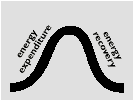
The Heart of Complexity
Superwave
Theory, Heart Rate Variability in Disease and Health:
A Provocative New Idea
Irving
Dardik, M.D.
- Forget traditional
"cause and effect" thinking. Forget the idea of a black box
with inputs and outputs. Instead, we must think in terms of loops.
- As a vascular surgeon, Dardik was working with parts. But he always thought about how they connect. Complexity theory is looking for a mathematical solution to those connections.
- Dardik was Chairman
of the Olympic Sports Medicine Program. In 1985, his friend and Olympic
Committee President Jack Kelly died suddenly during a long-distance
run, just three weeks into his presidency.
- The first Marathoner
was Phidippedes, the messenger, who also died after a long run.
- About that time,
a book titled "Running without Fear" was published, an indication
of the growing awareness of this problem.
- Dardik resigned
to devote his time to this one issue. Why were marathon runners, like
FloJo, dying? Dardik's hunch: Athletes die during the recovery "cool-down"
period. It was a simple and logical idea. Recovery from exercise is
physiologically identical to meditation. Your hormones and oxygen flow
lower, sometimes drastically. In exercise, getting to that state is
very stressful on the body. It's all a wave of energy.
 Dardik
began to see all behaviors as waves of energy
Dardik
began to see all behaviors as waves of energy
expenditure and energy recovery. For example: Anxiety --> relaxation; Awake --> asleep; Hunger --> eating; Exercise --> recovery.
- All chronic diseases are waves, too. Manic --> depression; Addiction high --> crash; Stress --> depression.
- Waves are part
of our evolution. We were not designed to be long distance runners.
We're designed to hunt at certain times, and take a siesta at others.
As we shall see, this plays an important role in maintaining healthy
waves.
- As heart rate
variability decreases, chronic disease increases. (See illustration
below.) Note that you can see waves within waves within waves. This
is a fractal structure. These fractals are organizing our body chemistry.
These heart waves decrease and "flatten out" as we get older.
- ADD is huge with kids right now. Dardik suggests that ADD kids are desperate for waves to be restored. That's why ADD kids can't just sit there.

- Heartbeats are
always climbing up and down in these waves. We always see EKGs in a
linear line. But nature doesn't produce graphs! Our body clocks are
really waves, within waves.
- As heart rate
variability decreases, chronic disease increases. (See illustration
below.) Note that you can see waves within waves within waves. This
is a fractal structure. These fractals are organizing our body chemistry.
These heart waves decrease and "flatten out" as we get older.

- Is it possible
to expand the variability of waves? It certainly is possible to make
it flat, by stressing it out too hard.
- Maybe this is
how the placebo effect works. I'm affecting the shape of the waves.
Same with relaxation. Macrobiotic diets too. It's also why fevers are
good for you -- they make waves.
- All organisms
have life cycles. Antibodies are 100x more effective if they have periods
of activation and periods of rest.
- All of our medical
texts plot everything out on a linear graph. The world was linear to
Galileo, Newton and Descartes. But nature is waves to begin with.
- Waves cluster at the peak. That's where they are condensed. I't's a pattern of order, then chaos, then order, then chaos.
- An understanding
of waves represents an opportunity for an individual to be empowered
to influence their own health. Exercise, for example, restores this
healthy complexity and regulates the energy from within.
- There is now a
computer program to analyze people, and identify these cycles within
cycles. This can be measured down to the atomic level.
- This is a way not just to reverse chronic disease... but to prevent.
Copyright
© 1999, VHA Inc. Permission
to copy for educational purposes only.